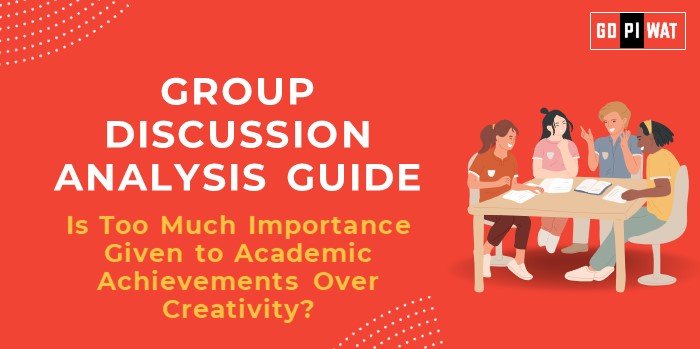📋 Is Too Much Importance Given to Academic Achievements Over Creativity?
🌐 Introduction to the Topic
Opening Context: Globally, academic achievements are often viewed as primary indicators of success, influencing career opportunities and social recognition. However, the growing focus on creativity as a vital skill in the digital era is reshaping this perception.
Topic Background: The emphasis on academic achievement over creativity stems from traditional education models designed to measure knowledge and analytical skills through grades and standardized testing. In recent years, however, industries have increasingly demanded innovative, creative thinkers, sparking a debate about whether the focus on academics has become excessive at the expense of fostering creativity.
📊 Quick Facts and Key Statistics
- 📈 Global Education Ranking: Many countries prioritize academic assessments for their educational quality rankings, often sidelining creative skills.
- 🎓 Youth Career Preferences (2023): Over 60% of students report academic performance as the primary factor influencing career choices, while only 35% consider creativity skills critical.
- 💼 Employment Trends: LinkedIn’s 2023 report lists creativity among the top 5 soft skills, with demand rising 20% annually in tech and media fields.
- 📚 Academic Pressure in Asia: Studies show 70% of students in highly competitive academic systems (e.g., China, India) experience high stress, with little room for creative pursuits.
👥 Stakeholders and Their Roles
- 🏫 Educational Institutions: Responsible for curriculum design that balances academic rigor and creative skills development.
- 👨👩👧👦 Parents: Often encourage academic success as it aligns with traditional job stability; however, parental attitudes are shifting as creative careers grow in value.
- 💼 Employers: Many seek a balance of academic knowledge and creative thinking in potential employees, impacting how educational goals evolve.
- 🏛️ Government Bodies: Policymakers play a key role in developing educational frameworks that nurture both academic and creative potential in students.
🏆 Achievements and Challenges
✨ Achievements
- 📘 Educational Reforms: Countries like Finland and New Zealand have introduced reforms emphasizing creative skills alongside academic knowledge.
- 🎨 Increased Innovation Training: Tech and media companies actively support creative skill development, funding workshops and programs in schools.
- 🚀 Entrepreneurship Growth: Academic institutions now promote startup culture, encouraging students to apply creative skills practically.
⚠️ Challenges
- 📋 Standardized Testing Focus: Systems that emphasize standardized tests often neglect creativity, limiting students’ ability to innovate.
- 😰 Academic Stress: High academic pressure often restricts time for creative exploration, impacting student well-being and potential.
Global Comparisons: Finland is known for minimal standardized testing, emphasizing creative skills from early education, which contributes to its strong performance in innovation rankings. In South Korea, though education is rigorous, recent initiatives aim to incorporate creativity into the curriculum to counteract academic burnout.
💡 Structured Arguments for Discussion
- ✔️ Supporting Stance: “Academic achievements provide measurable, comparable outcomes critical for future career opportunities.”
- ❌ Opposing Stance: “An excessive focus on academics can stifle creativity, which is essential for innovation and problem-solving in today’s world.”
- ⚖️ Balanced Perspective: “While academic achievements establish foundational skills, fostering creativity prepares students for an evolving and uncertain future.”
🔑 Effective Discussion Approaches
- 📊 Opening Approaches:
- Contrast Approach: “While academic achievements are universally recognized, does focusing exclusively on them compromise creativity?”
- Statistical Approach: “With over 60% of global youth placing academic success above creative skills, are we missing out on nurturing future innovators?”
- 🛠️ Counter-Argument Handling: Highlight examples where academic knowledge has benefited from creativity, such as in tech entrepreneurship. Reference countries that have successfully integrated creativity in education, showing tangible benefits without compromising academics.
📈 Strategic Analysis of Strengths and Weaknesses
- 💪 Strengths: Structured academic achievement builds discipline, rigor, and measurable progress.
- 💔 Weaknesses: Overemphasis can limit creative exploration and adaptability.
- 🌟 Opportunities: Blending creativity with academics can boost holistic development and innovation.
- ⚡ Threats: Risk of burnout and disengagement if academic pressure continues unaddressed.
📚 Connecting with B-School Applications
- 💼 Real-World Applications: B-school projects often require both analytical and creative skills, such as in case studies, simulations, and business pitches.
- ❓ Sample Interview Questions:
- “How would you balance academic knowledge and creative skills in a leadership role?”
- “What role do creativity and innovation play in modern business?”
- 🎓 Insights for B-School Students: Creativity can enhance problem-solving and decision-making, essential for leadership and innovation in business.


